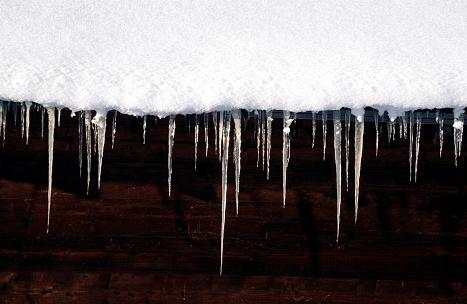 Are you thinking of investing in a freeze alarm to protect your vacation home or primary residence from damage caused by frozen pipes, but you don’t know what features to look for? The good news is that there are many affordable freeze alarms priced at less than $100 that do basic temperature monitoring. If the temperature in your home gets dangerously low, these freeze alarms will alert you by phone of the emergency condition. For slightly more money, you can upgrade to a more sophisticated freeze alarm with additional features and functions.
Are you thinking of investing in a freeze alarm to protect your vacation home or primary residence from damage caused by frozen pipes, but you don’t know what features to look for? The good news is that there are many affordable freeze alarms priced at less than $100 that do basic temperature monitoring. If the temperature in your home gets dangerously low, these freeze alarms will alert you by phone of the emergency condition. For slightly more money, you can upgrade to a more sophisticated freeze alarm with additional features and functions.
How to choose? Which features are important? This checklist to help you decide:
1)Â Are there any other conditions you want to monitor in addition to freezing temperatures?
All freeze alarms monitor for freezing temperatures in your home and send an alert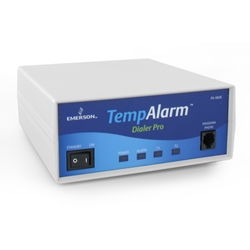 to your phone when the temperature has plummeted. Some models will also monitor for high temperatures, so you’ll be alerted if either your heating or air conditioning system fails, and many systems will monitor for power outages as well. You can also get a multi-function deluxe model that accepts sensors to monitor for additional conditions like flooding and burglaries.
to your phone when the temperature has plummeted. Some models will also monitor for high temperatures, so you’ll be alerted if either your heating or air conditioning system fails, and many systems will monitor for power outages as well. You can also get a multi-function deluxe model that accepts sensors to monitor for additional conditions like flooding and burglaries.
2)Â Do you want to be able to program the high and low temperatures that will set off the alarm?
Basic freeze alarms typically have a factory-determined low temperature set-point of around 45°F. If you want to be able to program the low (or high) temperature set-point, look for a freeze alarm with adjustable temperature set-points.
3)Â How many different phone numbers do you want your freeze alarm to call when there is an emergency?
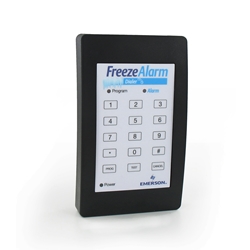 When there is an emergency condition, your freeze alarm will call a series of phone numbers to alert you of the situation. The most inexpensive, basic freeze alarm will call only one phone number. More popular systems can call three or more numbers, increasing the chances that someone will receive and respond to the alert. Most freeze alarms will call indefinitely until someone picks up and a response code is entered (or the emergency condition no longer exists), but there are models like the Reliance THP201 PhoneAlert that can be programmed to stop calling after a certain amount of time or number of attempts.
When there is an emergency condition, your freeze alarm will call a series of phone numbers to alert you of the situation. The most inexpensive, basic freeze alarm will call only one phone number. More popular systems can call three or more numbers, increasing the chances that someone will receive and respond to the alert. Most freeze alarms will call indefinitely until someone picks up and a response code is entered (or the emergency condition no longer exists), but there are models like the Reliance THP201 PhoneAlert that can be programmed to stop calling after a certain amount of time or number of attempts.
4) What kind of notification message do you want to hear when you receive an alarm alert – beeps, a pre-recorded voice, or your own voice?
Emergencies are usually unexpected events, so it’s important that the alarm message you get from your freeze alarm is specific and unambiguous. Very basic freeze alarms send beeps and require homeowners to memorize the conditions and corresponding number of beeps. Fortunately, the majority of freeze alarms send pre-recorded voice messages that state specifically which alarm conditions have occurred, and the more advanced systems allow you to record the alarm condition message in your own voice.
5) Do you want to be able to call in for status updates, find out the current temperature in your home, or have a remote control option?
If you want the ability to call your freeze alarm for an instant update on current temperature, power and back-up battery status, choose an advanced model like the Control Products Intermediate Freeze Alarm. This same model also allows you to remotely review or change telephone numbers, temperature set-points, security code and alert messages by phone.
This article summarizes the key features of freeze alarms, but there may be other considerations – such as VOIP compatibility and cost – that will determine your final selection. A freeze alarm will help protect your home against frozen pipe damage. Go to this handy freeze alarm comparison chart or watch this video for a comprehensive look at all of the features, functions and prices of today’s most popular models.


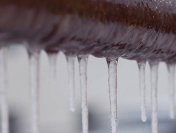

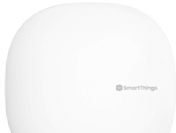
Pingback: A Freeze Alarm is Insurance for a Relaxing Winter Vacation
Pingback: Use a Freeze Alarm Wherever Temperature is Critical